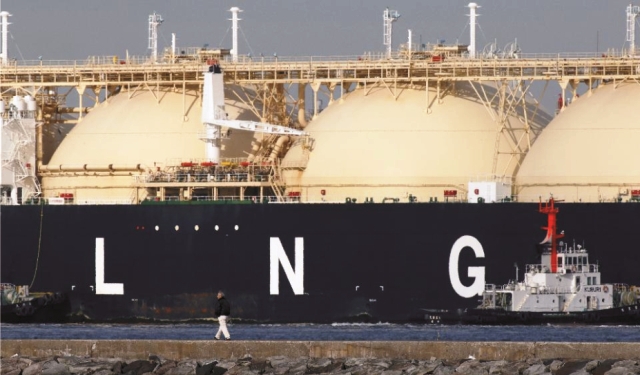Business
LNG’s Natural Gas Consumers Lament Price Hike

Consumers of Liquefied
Natural Gas (LNG) known as cooking gas have complained about the sudden increase in the price of the commodity.
Some of the consumers told newsmen on Saturday in Abuja that the price of the product was outrageous, considering the current situation in the country.
The price of refilling the 12.5kg cooking gas cylinder had been between N3,200 and N3,500 for a very long time but suddenly the price had gone up to between N4,000 and N4,500, while the camping gas cylinder which was N1,500 was now N2,500.
Mrs Perpetua Nwaigwe, a housewife, told newsmen that the increase in price was an additional hardship to many families.
She added that “I used to buy the 12.5kg of gas for N3,000 and it lasts for three weeks or even up to one month.
“In the last three years, the price had been stable, cheaper and easier to get than kerosene.
“But last week, I went to the gas plant to refill my cylinder and I was asked to pay N4,500; its really crazy.”
She said it was unfortunate that prices of goods kept increasing on daily basis and consumers had to bear the brunt.
Madam Amina Yusuf, a trader, said she decided to buy what her money could get for her by switching to charcoal for her cooking.
She sad “my husband managed to buy a small gas when the price of kerosene became too high and I was happy but now that the price of gas is also up, we have to find alternative.
“The small gas we used to fill with N1,500 is now N2,500; we cannot afford that.”
She then called on government to look into the situation and help to reduce the sufferings of ordinary Nigerians.
Also, Mr Amos Adeniran told newsmen that it was unfortunate that the price had gone up so much that people continue to complain.
He said “I am aware that we do not import gas, so, I am really surprise the way the price has been going up.”
Commenting on the situation, Mr Denis Onovo, the Manager of Denco Gas plant told newsmen that the increase in the price was
not because of scarcity.
He said “we were told that only one ship was allowed to offload product at the port as against three that it used to be.
“The price increase is because of consumer pressure in the purchase of the product; the demand is more than supply.”
According to him, the price of the 12.5 kg gas varies between N4,000 and N4.500, depending on the location the consumer is buying.
He said that in the FCT, the price of 12.5kg was currently N4,500 but in the outskirts of Abuja, it was N4,000.
The Tide reports that NIPCO gas plant and some filling stations still refill the 12.5 kg between N3,500 and N3,800.
Meanwhile, major marketers of cooking gas assured that the recent price hike would soon crash as vessels had started discharging
product at Apapa terminal.
Mr Bassey Essien, the Executive Secretary, Nigerian Association of Liquefied Petroleum Gas Marketers (NALPGAM), said there was no reason for increase in price of domestic gas because the product was being sourced locally and with local currency.
He said “Nigerians should expect reduction in price of domestic gas due to ongoing discharge by vessels at the NIPCO/PPMC Apapa terminal.”
Transport
Automated Points Concession : FAAN Workers Gave 72hrs To Revise Decisions In PH

Transport
FAAN Announces Pick-Up Points for Go-Cashless Cards

Business
Fidelity Bank To Empower Women With Sustainable Entrepreneurship Skills, HAP2.0
-

 News4 days ago
News4 days agoAmend Constitution To Accommodate State Police, Tinubu Tells Senators
-

 Politics4 days ago
Politics4 days agoSenate Urges Tinubu To Sack CAC Boss
-
Business4 days ago
Crisis Response: EU-project Delivers New Vet. Clinic To Katsina Govt.
-
Business4 days ago
President Tinubu Approves Extension Ban On Raw Shea Nut Export
-

 News4 days ago
News4 days agoDisu Takes Over As New IGP …Declares Total War On Corruption, Impunity
-
Business4 days ago
Fidelity Bank To Empower Women With Sustainable Entrepreneurship Skills, HAP2.0
-
Business4 days ago
President Tinubu Extends Raw Shea Nuts Export Ban To 2027
-
Sports4 days ago
NDG: Rivers Coach Appeal To NDDC In Talent Discovery

